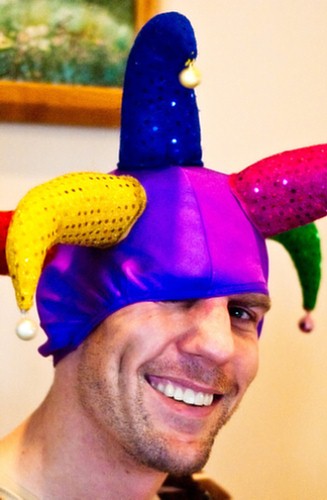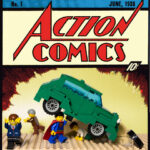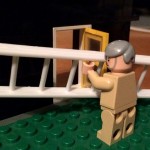Any fool can criticize, condemn, and complain – and most fools do. – Dale Carnegie
What does that mean?
It says that he considers it foolish to criticize, condemn and complain. I agree. Anyone can run their mouth and do the three C’s (criticize, condemn, and complain). And as he states, most fools do just that. The implication is that those who are non-fools will neither criticize, condemn nor complain. Instead, I believe that we should cooperate and attempt to help each other.
Why is cooperation important?
It appears to be human nature to complain, blame/condemn and criticize, but that is a foolish thing to do. Why foolish, you ask? What does any of those things accomplish? Does complaining get anything done?
How well does the blame game work? Does blaming some one (even if rightly deserved) move anything forward? Or does it just lead to hard feelings and plotting for revenge? Does condemnation work any differently for you, or does it get about the same results?
How about criticism? How effective of a motivational tool is that? How well does it work in a planning meeting to have every plan torn to shreds? Does anything (besides the generation of hard feelings) ever get generated?
The opposite of the three C’s is a fourth C, cooperation. Instead of complaining, cooperate and help solve whatever is making you complain. Instead of condemning people for what they are doing (or failing to do), offer to lend a hand to get the task completed. Instead of criticizing, offer up alternate solutions that overcome the flaws in the original plan.
Does that make sense? Does that help to show the difference between the person who is a fool and the person who cooperates?
Where can I apply this in my life?
Any time you feel one of the three C’s trying to come out of your mouth, close it. Sounds simple enough, but it takes some practice (at least it did for me). This will become a habit, so plan on getting a lot of practice in before you get really good at it.
I started with Conscious Competence, where I had to recognize that I had just said something foolish (by definition, isn’t that what fools say, right?). Then I would have to follow up with something constructive. That was another exercise, having to think on my feet and come up with ideas and comments that were helpful as quickly as I had come up with words that were foolish.
Next, I started trying to preempt first my mouth, then my brain. Stop the ideas before they came out of my mouth was the first step of Phase II. A lot of times, I’d start a sentence, and have to redirect the comment to something more helpful and less foolish.
For me, the final step was to preempt the thought in the first place. I started by allowing the thought to occur, then dismissing it before I had a chance to speak it. I then started to cut my thought off as soon as I noticed that it was heading down a foolish path. Now, my primary path is that of cooperation, not the path of foolishness.
When do you find yourself most likely to take the foolish path and spout off one (or more) of the three C’s? Write a few down. Is there a pattern, does it happen more in certain situations? Knowing this will help with the first step, when you are trying to be aware of when you are being foolish.
Once you have an idea of when and where it’s most likely to occur, try to catch yourself in the act. Then try to find a way to provide a helpful solution to the problem at hand, so that you are cooperating and not just being foolish.
With time, you will start to notice that you are headed down the path of foolishness, and be able to intervene earlier and earlier in the process. This will limit your time being foolish, and allow you to shine as a cooperative player.
Eventually, you will be able to all but banish the three C’s and move forward as a primarily cooperative person. The kind of person who has a smile and a compliment ready at all times. Someone who can suggest a new idea, a different option, a alternative path, and do so without making anyone feel bad about it.
I know, there are times I want to slap someone around. My motto has often been “I don’t suffer fools, I make fools suffer!” But I have found that usually, when I follow that path, I’m the one who ends up looking like the fool, and nothing useful comes of my actions.
Treating someone badly can seriously damage a team spirit, and life is a team sport, or at least that’s how it appears to me. Yes, sometimes others will take the credit or pass the blame. Pointing it out might make you right, but it isn’t always the best play for the team.
Cooperation is the quickest and most efficient manner to move forward. Sometimes we don’t get our way. That is one of the leading causes (for me, at least) for starting down the foolish path and going back to the three C’s.
So the next time you see someone acting like a fool, and sputtering out the three C’s, I would recommend that you imagine that they are wearing the hat (from the photo) and looking all goofy. Then smile and cooperate, provide hints, ideas, plans or something else to move things forward. And be sure to compliment them on their hat! 8)
From: Twitter, @motivatquotes
confirmed at : http://www.brainyquote.com/quotes/quotes/d/dalecarneg108920.html
Photo by CarbonNYC








Pingback: To avoid criticism say nothing, do nothing, and be nothing. | philosiblog